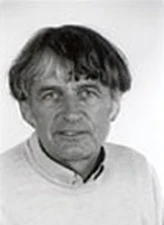Joseph Egger

The 2004 Vilhelm Bjerknes Medal is awarded to Joseph Egger for his fundamental and creative contributions to large-scale atmospheric dynamics, boundary-layer flows, and numerical methods in atmospheric sciences.
Joseph Egger has made innovative contributions to several areas of atmospheric dynamics and numerical methods in meteorology, in a number of instances breaking new ground for other scientists to follow. In large-scale atmospheric dynamics, he was the first to embark on several topics, including the interaction of transient baroclinic waves and a planetary wave, the impact of SST anomalies on Rossby waves, and various aspects of atmospheric angular momentum, including the role of the angular momentum transfer generated by the Antarctic slope winds.
Professor Egger is a pioneer in the technique of using stochastic forcing to study atmospheric large-scale motions, a concept that has proven to be fruitful and has become widely used.
The interaction of synoptic scale flows with topography is yet another area in which Joseph Egger has left his mark. In the seventies, he presented the first numerical simulation of Alpine lee cyclogenesis using a new representation of orography. With numerous theories of lee cyclogenesis proposed, he developed novel test techniques which allowed the identification of deficiencies of some of these theories. He proposed and was a head of a research program on “Fronts and Orography”, which resulted in a considerable improvement of the understanding of the mechanisms involved.
Valley flow research has also attracted Joseph Egger’s interest both as a theoretician and as an experimental investigator. Following his development of a hierarchy of conceptual valley flow models he initiated two field campaigns in the Himalayas which were remarkable in that the new technology of remotely piloted planes was used, under difficult conditions, to clarify an extreme phenomenon.
In his numerical work, Joseph Egger repeatedly and over the course of more than three decades has put forward innovative ideas which have brought to light topics that were not even noticed before: noise/grid point mode separation, blocking to represent mountains, volume conservation in the chaos and predictability framework.
Since 1977 Joseph Egger is professor of Theoretical Meteorology at the University of Munich. He was head of a Bavarian programme on regional climate change and its implications. At the time of this writing he is scientific director of the research station Schneefernerhaus located just below the top of Germany’s highest mountain.
